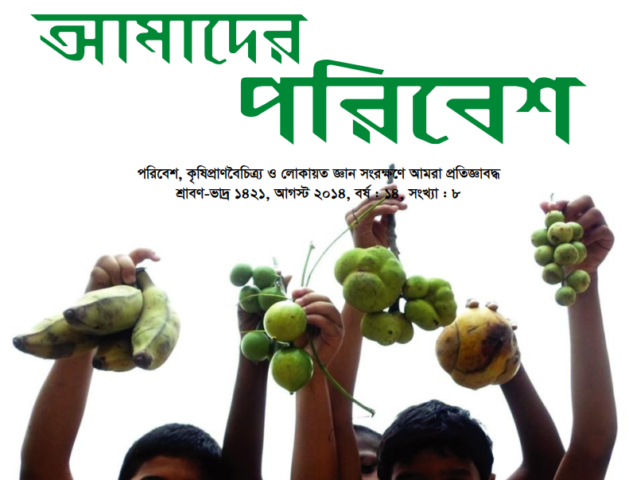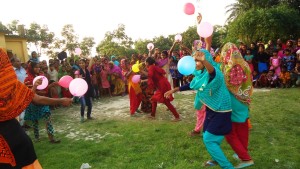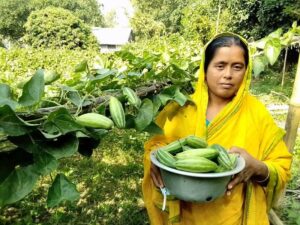By Md. Suyel Rana from Netrakona
Nature is the source of all life. Life strives with all its abilities to sustain itself. This is the rhythm of life in nature. Every life form survives by embracing nature, interacting with the nature. Humans are no exception. However, food is essential for survival of all life forms. When societal or national economics align more with luxury or pleasure of humans rather than with the necessities of life, discontent is evident there.
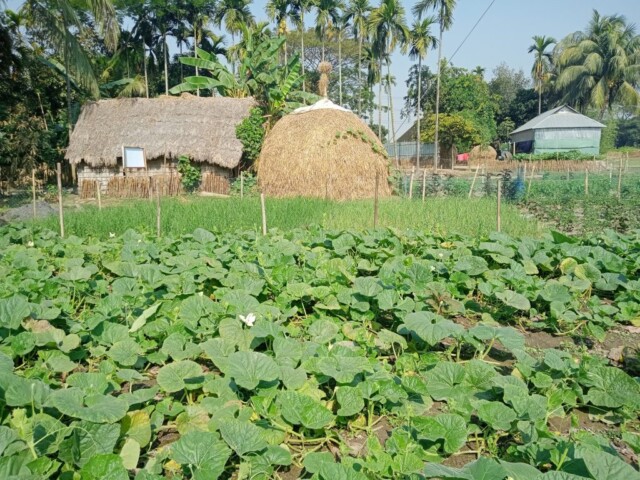
Generally, it is the human beings who intentionally or unintentionally endeavor to distance themselves from nature’s fabrications and immerse themselves further in artificiality, luxury. But unless we accept nature into our civilization, our existence will veer toward decline, beyond our capacity to remedy. By protecting nature, we can ensure our own protection. This conviction is held by farmer Mr. Hafizur Rahman (45) of Ramkrishnapur village in Netrakona.
He states, “The quantity of land does not determine a farmer’s well-being. Proper cultivation involves the surrounding land, appropriate use for planting vegetables, and the sole source of safe food for the family.”
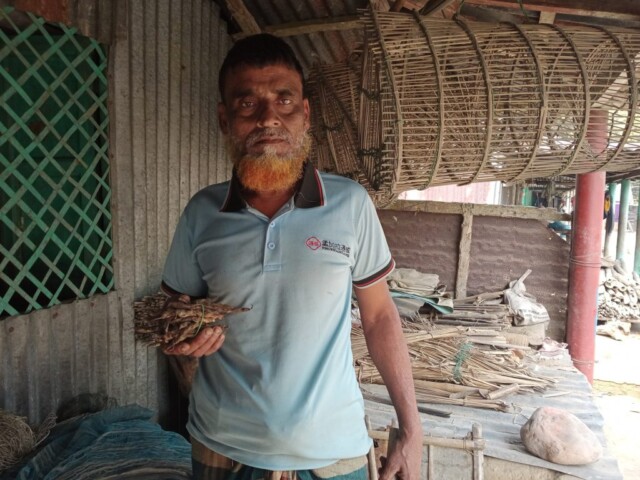
Mr. Hafizur is deeply engaged in agriculture. He cultivates various local vegetables, crops, and rice year-round. Applying skills acquired through discussions and interaction with skilled and experienced farmers he manages his livelihood and plays a significant role in environmental conservation and ensuring safe food. In society, he is recognized as an exemplary farmer due to his practice of conserving seeds and advising other farmers. He recently introduced pigeon farming to boost his income.
Throughout the year, he cultivates and sells a variety of crops such as potatoes, cauliflowers, gourds, and others. He also grows ginger, turmeric, mustard, and chilies in his homestead and fields. Besides meeting his own needs, he helps neighbors with vegetables, seeds, or seedlings whenever needed. Furthermore, he utilizes uncultivated plants like taro, malabar spinach, colocasia, and cassava as food and medicinal sources.
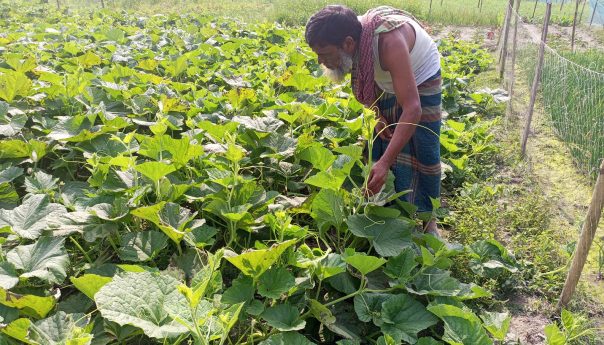
Mr. Hafizur Rahman has a pond on his own land, meeting the family’s annual protein demand. Additionally, he supplements a small portion of the family’s protein requirement from small local water bodies during the dry season. When fish production is abundant during the monsoon, he preserves some fish through processing ensuring dried fishes for his family that is generally consumed during crisis of foods. Presently, his family raises 2 cows, 2 goats, 6 chickens, 5 ducks, and maintains 5 pairs of pigeons.
Translated by Silvanus Lamin

